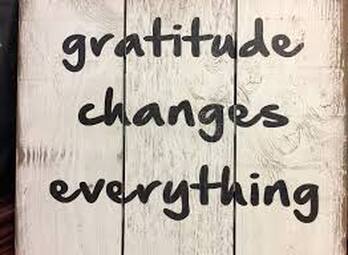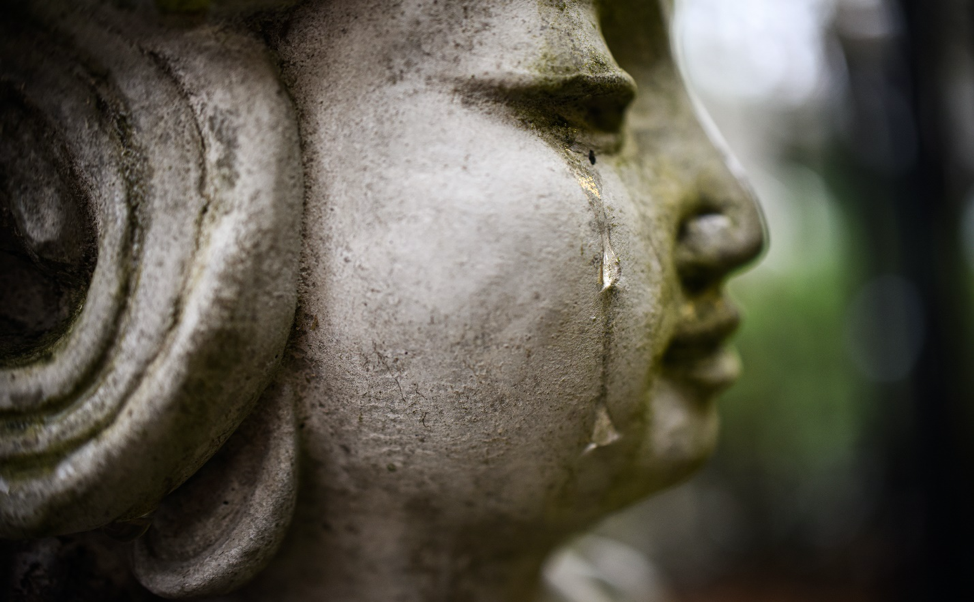gratitude
To me gratitude begins with giving thanks. Thanks for my life, my family, my friends, my career which I found early on and still love to this day, my garden, the mountains, the ocean, Portland…and so it goes on and on. Gratitude although similar to giving thanks, seems bigger to me. Gratitude comes in when I see a sunrise or sunset that takes my breath away, or in those moments when my love for my family overwhelms me, when I feel a deep connection with another being; I feel my heart expand and almost get lightheaded. I am left with a sense of wonder and awe.
I decided to ask some people in my life what gratitude means to them:
“For me gratitude is that experience when you hear about something or remember something or realize something for the first time that opens your heart with love and appreciation for the human experience. I often physically experience gratitude as it overflows my capacity to embody it because it is so big and my heart expands its capacity to hold more each time.”
“it comes to me from grace, this overwhelming feeling of awe and appreciation. I feel it in those touching little moments throughout the day: the sound of geese honking, the complete and total laugh of a baby, the smell of the lilacs, the unfolding of the flowers, the crescent moon in the dark sky. And I feel it in those big moments of love: of people and animals in my life, of children, of my friends, my family. I, too, often have an overwhelming feeling that comes over me. It really allows me to be fully surrendered into the experience of the moment, because in that moment when I feel so deeply touched by gratitude…”
“Gratitude - a word containing so much love, community, friendship.”
“I experience gratitude as a verb, not a noun – it is a felt sense. When I really touch in and feel gratitude in my heart, it compels me to act, speak and be in the world in a different way. Gratitude changes my relationship to the world, tunes me into the preciousness of human life and alters my thoughts and actions. I cannot experience gratitude without being fully present, here, now. I like to remind myself of the bodhisattva training slogan ‘Be grateful to everyone.’ Meaning, everyone (even and especially those people who irritate us) has something to teach us and can help wake us up.”
Books and authors on gratitude:
Oliver Sacks wrote a short small book entitled Gratitude... He writes
“above all, I have been a sentient being, a thinking animal, on this beautiful planet, and that in itself has been an enormous privilege and adventure.”
Pema Chodron writes on gratitude “Being satisfied and grateful with what we already have is a magical golden key to being alive in a full, unrestricted, and inspired way.” Also on the yin and the yang; the light and shadow and how we must have gratitude for both: “The healing comes from letting there be room for all of this to happen: room for grief, for relief, for misery, for joy.”
Eckhart Tolle “if the only prayer you say in your entire life is thank you, that will be enough”
And from my favorite book, The Book of Joy, “the Dalai Lama’s ability to be grateful for the opportunities that exist even in exile…acceptance means not fighting reality. Gratitude means embracing reality. It means moving from counting your burdens to counting your blessings…”
PRACTICING GRATITUDE
The benefits of practicing gratitude are endless. Go ahead and take a moment to reflect upon something that you are truly thankful for – it could be as simple as gratitude for your breath or the natural world. Notice if this alters your sensations or perceptions. Maybe you feel lighter or the world appears brighter, your chest may feel more open, or you may even be moved to tears. People who regularly take time to notice the things they are thankful for experience more positive emotions, feel more alive, sleep better, express more compassion and kindness, and even have stronger immunity.1,2 Gratitude does not need to be reserved only for celebratory and important moments – it can be practiced in everyday life, even in moments of stress or hardship. Research by Robert Emmons, author of Thanks!: How the New Science of Gratitude Can Make You Happier, demonstrates that simply keeping a gratitude journal can significantly increase well-being and life satisfaction.1, 2
Here are some suggestions on implementing a gratitude practice into your daily life:
I decided to ask some people in my life what gratitude means to them:
“For me gratitude is that experience when you hear about something or remember something or realize something for the first time that opens your heart with love and appreciation for the human experience. I often physically experience gratitude as it overflows my capacity to embody it because it is so big and my heart expands its capacity to hold more each time.”
“it comes to me from grace, this overwhelming feeling of awe and appreciation. I feel it in those touching little moments throughout the day: the sound of geese honking, the complete and total laugh of a baby, the smell of the lilacs, the unfolding of the flowers, the crescent moon in the dark sky. And I feel it in those big moments of love: of people and animals in my life, of children, of my friends, my family. I, too, often have an overwhelming feeling that comes over me. It really allows me to be fully surrendered into the experience of the moment, because in that moment when I feel so deeply touched by gratitude…”
“Gratitude - a word containing so much love, community, friendship.”
“I experience gratitude as a verb, not a noun – it is a felt sense. When I really touch in and feel gratitude in my heart, it compels me to act, speak and be in the world in a different way. Gratitude changes my relationship to the world, tunes me into the preciousness of human life and alters my thoughts and actions. I cannot experience gratitude without being fully present, here, now. I like to remind myself of the bodhisattva training slogan ‘Be grateful to everyone.’ Meaning, everyone (even and especially those people who irritate us) has something to teach us and can help wake us up.”
Books and authors on gratitude:
Oliver Sacks wrote a short small book entitled Gratitude... He writes
“above all, I have been a sentient being, a thinking animal, on this beautiful planet, and that in itself has been an enormous privilege and adventure.”
Pema Chodron writes on gratitude “Being satisfied and grateful with what we already have is a magical golden key to being alive in a full, unrestricted, and inspired way.” Also on the yin and the yang; the light and shadow and how we must have gratitude for both: “The healing comes from letting there be room for all of this to happen: room for grief, for relief, for misery, for joy.”
Eckhart Tolle “if the only prayer you say in your entire life is thank you, that will be enough”
And from my favorite book, The Book of Joy, “the Dalai Lama’s ability to be grateful for the opportunities that exist even in exile…acceptance means not fighting reality. Gratitude means embracing reality. It means moving from counting your burdens to counting your blessings…”
PRACTICING GRATITUDE
The benefits of practicing gratitude are endless. Go ahead and take a moment to reflect upon something that you are truly thankful for – it could be as simple as gratitude for your breath or the natural world. Notice if this alters your sensations or perceptions. Maybe you feel lighter or the world appears brighter, your chest may feel more open, or you may even be moved to tears. People who regularly take time to notice the things they are thankful for experience more positive emotions, feel more alive, sleep better, express more compassion and kindness, and even have stronger immunity.1,2 Gratitude does not need to be reserved only for celebratory and important moments – it can be practiced in everyday life, even in moments of stress or hardship. Research by Robert Emmons, author of Thanks!: How the New Science of Gratitude Can Make You Happier, demonstrates that simply keeping a gratitude journal can significantly increase well-being and life satisfaction.1, 2
Here are some suggestions on implementing a gratitude practice into your daily life:
- Start a gratitude journal - take a moment each morning or evening to write brief reflections on moments for which or people for whom you’re thankful. Alternatively, if you feel like you don’t have the space or time to write, make a practice to wake each morning and say aloud 2-3 things you are grateful for.
- Post reminders around your house of things for which you are thankful. A good place to start with this is your bathroom or bedroom mirror – so you will be reminded at the start and end of your day. Another place might be your rearview mirror in your car; a tiny symbol of gratitude as a reminder when you are stuck at a light or in heavy traffic. You can also carry a note of gratitude around in your wallet.
- Write a letter to someone expressing gratitude.
- Focus on sensations - sight, touch, taste, smell, sounds – to bring you to the present moment. By focusing on bodily sensations, you can reflect on the preciousness of human life and the miraculous ability of our body to perceive in all of these ways.
- Write or learn a gratitude prayer. There are many wisdom traditions in the world with prayers of gratitude. One example is Thich Nhat Han’s Zen prayer to be said before eating: “In this plate of food, I can see the entire universe supporting my existence.”
- Make gratitude a social practice – when you gather with friends or in a group (even a virtual group), start a practice of expressing appreciation for one another at the beginning and/or end of the gathering. Daily highs and lows are a good way to connect with your family or friends.
From the Quan Yin at the entrance to An Hao. Photo by Allison Kwesell.
“Kwan yin’s presence is the abode of compassion in which we live; the deep satisfaction of generosity and gratitude, loving kindness and sympathetic joy, forgiveness, patience, mercy, and a lifetime commitment to self-discovery and the well-being of others” Stephen Levine
References:
“Kwan yin’s presence is the abode of compassion in which we live; the deep satisfaction of generosity and gratitude, loving kindness and sympathetic joy, forgiveness, patience, mercy, and a lifetime commitment to self-discovery and the well-being of others” Stephen Levine
References:
- https://greatergood.berkeley.edu/article/item/why_gratitude_is_good/
- Emmons RA. Gratitude as a Psychotherapeutic Intervention. Journal of Clin Psychol. 2013 Aug; Vol. 69 (8), pp. 846-55.
|
2348 NW Lovejoy
Portland, OR 97210 TEL: 503.224.7224 FAX: 503.224.1345 EMAIL: [email protected] Please call to schedule an appointment. Please email pharmacy orders. |

